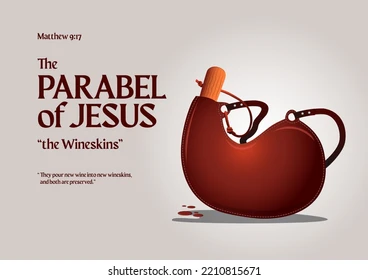The first official work of the great Renaissance artist Michelangelo was the Drunken Bacchus (1497), commissioned by his patron, Cardinal Riario. This marble sculpture depicts the Roman god of wine, Bacchus, holding a goblet while intoxicated. The Romans called wine a blessing of the gods. This alcoholic beverage has accompanied us throughout human history. However, what makes wine is not the blessing of the gods' but microorganisms invisible to the human eye.
This fantastic role of microorganisms was not discovered until 1864 by the French chemist and biologist Louis Pasteur. While he was a chemistry professor at the University of Lille in northeastern France, Pasteur was asked by a local winemaker to investigate the phenomenon of wine not fermenting properly and turning sour. He devoted himself to finding a solution.
Pasteur discovered that alcoholic fermentation did not occur when lactic acid bacteria, not yeast, were contained in the crucible used for winemaking. That wine turned sour due to acetic acid bacteria. Pasteur's shining achievement in science's history was the discovery of microorganisms that cause fermentation, spoilage, and disease.
When one molecule of glucose in grapes, the main ingredient of wine, is broken down by yeast, two molecules of ethanol and two molecules of carbon dioxide are ultimately created, and this process is ethanol fermentation. The biochemical action of single-celled organisms such as yeast creates ethanol in alcohol. If wine is exposed to oxygen, acetic acid fermentation occurs, and the wine turns into vinegar. This is why leftover wine turns sour if the cork is improperly sealed.
2,000 years ago, when making wine, grapes were crushed and placed in a leather bag made of sheep or goat leather to ferment. The carbon dioxide gas produced along with ethanol during this process causes the leather bag to swell. Old leather bags lose elasticity and become stiff; eventually, the leather bag bursts and wine is lost. Even if it does not burst, if oxygen in the air enters the cracks in the swollen bag, the wine undergoes acetic acid fermentation and turns sour, making it undrinkable. Therefore, new wines must be put into new, flexible wineskins.
The Bible also says this. "New wine must be put into new wineskins." (Luke 5:38). This word also applies to our lives. It has been almost a month since the new wine of 2025 was given to us. Our society is the wineskins that hold that wine. In all fields, including politics, economy, culture, art, education, and religion, 2025 is a time to start over again, not forgetting our original intentions and seeking development and advancement.
Not forgetting our original intentions means returning to the basics and pursuing what is important. Politicians should not forget the essence of politics, educators the essence of education, medical professionals the essence of medicine, and believers the essence of faith, and they should return to the basics.
A new wineskin does not become one by changing people, roles, and systems. It must be accompanied by a sound philosophy, determination to make correct value judgments, and a change in behavior to break old habits. When we restore our original intentions, return to the basics, and strive to regain our essence, we can truly become new wineskins that hold new wine. The columnist prays that in all areas of our society and as individuals, all members will be reborn with new determination and become new vessels that can hold new wine.






